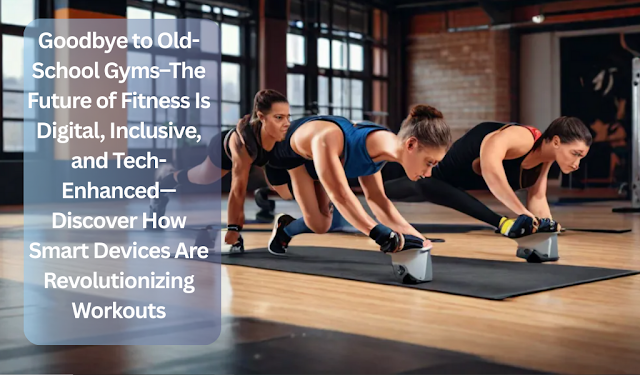The fitness industry has seen significant
transformation in recent decades, but in the last five or so years,
particularly with the introduction of artificial intelligence, it has
unquestionably become nearly unrecognizable. While hiring a trainer and
joining a gym still offer numerous benefits, the advent of technology has
enabled millions of people to enhance their fitness journeys in
previously unachievable ways.
This is due to the ability to track their progress, educate
themselves, and receive a more personalized experience at an affordable cost.
Wearables that track every heartbeat, AI-customized workouts, and
virtual reality (VR) workouts that feel like games — all new tools that can
help us optimize our health in ways that are effective, accessible, and
actually kind of fun. However, we won't even get into the world of biohacking
technology, as that is a whole other field with many questions and few answers.
What equipment is truly worth the investment, and how has the fitness industry
evolved?
Step counters, heart rate monitors, and the first GPS trackers were
among the new technologies introduced in the early 2000s, but they pale in
comparison to the products offered today by companies like Apple,Garmin, Fitbit, and WHOOP, which can provide information on everything from
steps and calories to stress levels, sleep quality, and even recovery
readiness. For people who take their health seriously, all of this knowledge is
vital, even though it can be overwhelming at times.
An expert from The FIT Partnership highlights the advantages of the change.
"People can now take greater control over their health than ever before
because of technology. You have actual data to work with now, so you're not
simply speculating.
Now that artificial intelligence has been added, all of the data that is
gathered may be accurately analyzed for you to help you design your own
workouts, learn from your performance, and modify each session to fit your
goals and current level. It can assist you in continuously adjusting according
to your progress, ensuring that every moment matters during this hectic period
of life.
The expert compares it to having a personal trainer who never sleeps.
However, as overexertion has long been cautioned about by scientific and sports
medical advancements, it is not just about growing fitter the "traditional
way"; it is also about well-being and recovery. It is now feasible to
determine when and what kind of rest is necessary to enhance performance. Now
more than ever, technologies like cryotherapy, infrared saunas, and hyperbaric
chambers are being used by the general population. They also gather data to
make sure that therapies are customized for you and that you heal more quickly.
News is even better for introverts, particularly now that the pandemic has made
most of these essential for people who are going crazy at home. Products like
Mirror and platforms like Peloton, which can mix live coaching with a virtual
community to give you the energy of a group class without ever leaving your
house, are examples of how virtual and augmented reality have made their mark
on the fitness industry. Those who enjoy VR-based workouts say they keep things
and are more likely to stick, even if they are less common and can be a little
riskier. Additionally, a professional can still provide you with tailored
criticism.
The tools are crucial because, without artificial intelligence (AI),
a qualified professional would have to spend hours doing the work, which would
cost you a lot of money. Any device you choose can gather various health
metrics, such as heart rate variability and sleep efficiency, and help you use
that data to make better decisions. You can now do better with little
assistance or trouble.



No comments:
Post a Comment